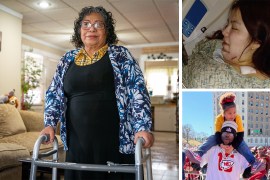Faith-Based Organizations Express Support for Needle-Exchange Programs
Faith-based organizations on Monday during an event voiced support for needle-exchange programs as a means of preventing the spread of HIV among injection drug users and their partners, CQ HealthBeat reports. The meeting -- sponsored by the Interfaith Drug Policy Initiative and the Drug Policy Alliance -- brought faith-based groups together to discuss ways to advance exchange programs and repeal a ban on federal funding for such programs (Mattingly, CQ HealthBeat, 3/4).
The meeting comes after President Bush in December 2007 signed a $555 billion fiscal year 2008 omnibus spending bill (HR 2764) that effectively lifted a ban on city funding for needle-exchange programs in Washington, D.C. Since 1999, the district has been the only U.S. city barred by federal law from using local funds for needle-exchange programs. A report released in November 2007 by district health officials found that injection drug use was the second most common cause of HIV transmission in the city (Kaiser Daily HIV/AIDS Report, 1/3). According to the North American Syringe Exchange Network, there are more than 200 needle-exchange programs operating throughout the country, mostly on the local and regional levels.
Charles Thomas, executive director of IDPI, said organizations that voiced support for needle-exchange programs include the Unitarian Church, the Episcopal Church, the Union for Reform Judaism and some Baptists. Mary Jo Iozzio, a board member of the Society of Christian Ethics, said, "Some would say this is a little left leaning for [SCE], and they would be right," adding, "But to do anything less is to fail to act to save human lives." William Martin, a senior fellow for Religion and Public Policy at Rice University, said that among conservatives, "there is a great deal of resistance on drug policy reform." He added, "But there are a lot of loose bricks on the wall."
According to CQ HealthBeat, any chance of lifting the ban on federal funds for needle-exchange programs "faces a difficult partisan battle" in Congress. Bill McColl, political director for AIDS Action, said, "I consider this a nonpartisan issue, but the change in administration will certainly help" lift the ban. Democratic presidential candidates Sens. Hillary Rodham Clinton (N.Y.) and Barack Obama (Ill.) both have said they support using federal funds for needle-exchange programs. Republican presidential candidate Sen. John McCain (Ariz.) has not given an official position on the issue, CQ HealthBeat reports. However, McColl said he has not dismissed the possibility that McCain would support efforts to repeal the ban (CQ HealthBeat, 3/4).






